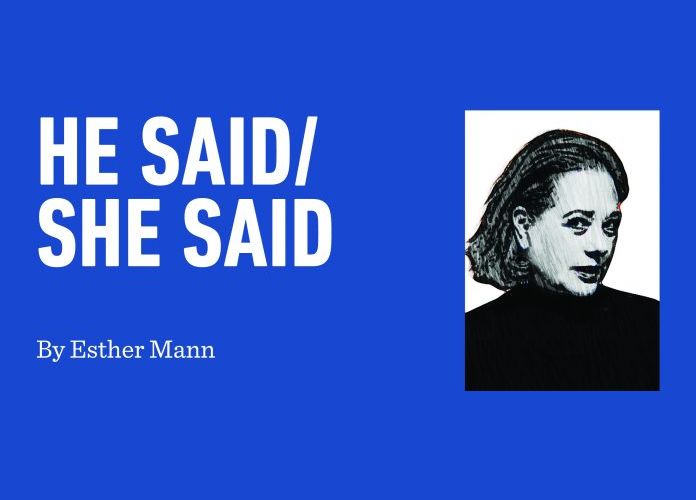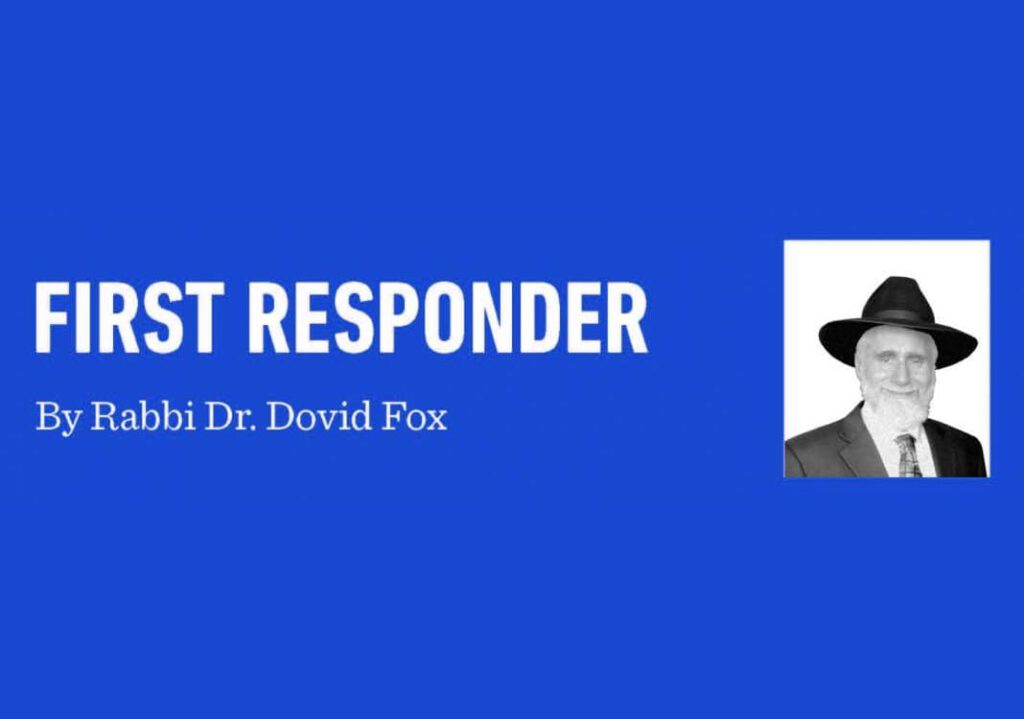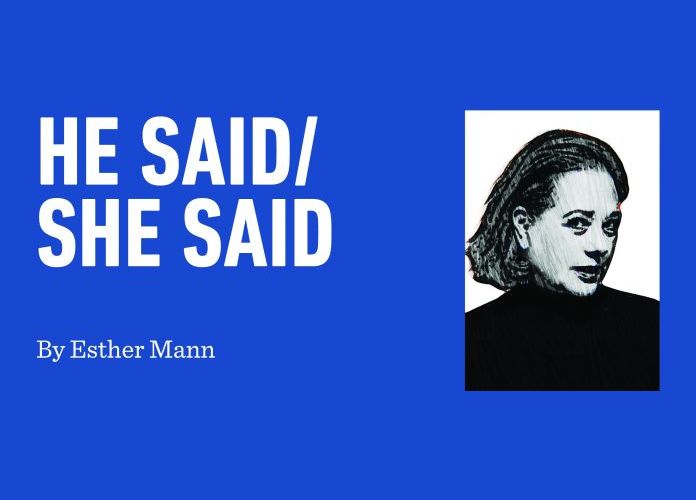He Said/She Said
DISCLAIMER: The following column is a composite of several different experiences I have had with clients. It does not depict a specific encounter. This story is not about you!
Many people wear various masks during their lives. For instance, some people slip on their “community mask” to project the solid image of a concerned, active, engaged individual to the public. There is also a mask we wear among good friends to demonstrate loyalty and support, despite possibly harboring feelings like jealousy or resentment that are not consistent with this image we hope to present. Then there is the “work mask,” which may be constructed to demonstrate a serious, devoted employee, and the list goes on.
The question is, where and when do we feel absolutely safe and secure enough to rip off the masks and expose our true colors—the good, the bad and the ugly? When do we remove even the hint of a disguise, setting aside all pretexts, knowing that we are accepted for who we truly are… and even if we’re not, such is life.
Though no two people are alike, many of us struggle to figure out what our authentic self looks like and whether we’re comfortable letting that side be known. Because to expose our true selves requires vulnerability, which is a little scary. I would suggest that more often than not, people are comfortable letting their hair down and exposing their truest self when they are in the safety of their home.
When living with a person who behaves one way at home (whether a parent, spouse, or sibling) and witnessing them behave another way outside of the home is always disconcerting, especially when they are admired or even revered. At best it can be annoying and frustrating, and at worst it can be crazy making. You might find yourself feeling stymied, trying to figure out who is experiencing the real person. Where does reality end and the illusion begin?
Mendy was such a person. He had a big, bold, wonderful reputation on the outside. Many people knew his name and respected him greatly. And for good reason. He was a very involved, caring individual, who impacted the lives of many people in a meaningful way. Unfortunately, his home life told a different story.
With confidence and sincerity, Mendy began. “I grew up in a home where chesed was everything. From a young age, I watched my mother constantly showing up in school, participating in all sorts of volunteer activities. I knew she was president of the PTA, planning all sorts of exciting events. My friends all knew who she was because she was so often at school with a big smile on her face. I felt so proud of her. She was also involved with the Sisterhood of our shul and did other volunteer work. She was amazing.
My father, in addition to being a successful businessman, found time to be on many charitable boards, held parlor meetings in our home, hosted visiting rabbis and scholars-in-residence, and basically modeled for his children what it meant to be a good person and a good Jew. I was very proud of him as well.
My parents often spoke to me and my siblings about the importance of giving back. To be out there, thinking about others…. not just ourselves. I think we all received that message loud and clear. So, I’ve tried to do the same, I…” At this point, Freeda couldn’t listen anymore. She practically jumped out of her seat, and shouted, “Enough!”
Clearly, Freeda couldn’t listen to what Mendy had to say anymore. It seemed as though the dam had finally burst. I got the impression there was plenty on Freeda’s mind that she had held in for a very long time and felt she couldn’t sit any longer and tolerate it. Not for a minute longer.
Again, Freeda repeated her loud and shocking, “Enough.” She continued, “It’s time Mendy got to hear what it feels like to be married to ‘Mr. Wonderful,’ who everyone adores and thinks the world revolves around. It’s been horrific for me and the children. If Mendy only took the time to think about us and see what our lives look like, maybe he would adjust his schedule so that we had a husband and father present at home. But he hasn’t and I can’t go on like this a moment longer.”
I looked over at Mendy and noted a distinct shift in his demeanor. No longer was he sitting up straight and self-assured. There was the discernable crack in his armor. I think Mendy was as shocked as Freeda was to witness this not-so-subtle deviation in his manner.
Freeda went on. “Don’t get me wrong. I’m all for chesed. I try to do my fair share as well, though with seven children to take care of entirely on my own, my time is limited. I actually wish I could do more for others, but Mendy has monopolized all the time and energy from our home and I have little left to work with. People think Mendy walks on water. A day doesn’t go by when someone doesn’t comment about what an amazing husband I have. I have to smile and say ‘thank you,’ while inside, I’m thinking they should only know what a thoughtless husband and father he is. They should only know that he probably doesn’t even know what grades his kids are in, let alone that I just took three of them to the doctor for the flu, and that I just had a fever of 103 degrees myself for two days from the flu. They should only know that even though the entire community feels they can always count on Mendy to get things done, I feel entirely on my own to run the house, raise the kids, deal with emergencies…and here’s the punchline: doing all that with a smile on my face because I’m married to such a fantastic man!
“I feel like Mendy is a hypocrite. And I feel like I’m also a hypocrite. And I don’t know what to say to our children who are always disappointed when their father doesn’t show up for any of their school events, let alone something as simple as a Little League game. Do I save face for Mendy and come up with constant excuses as to why their father can’t be there, or do I validate their pain and explain that their father thinks that the parlor meeting of the day is more important than they are? I ask myself this and many other questions all the time. But the biggest question I ask myself is, ‘Who is the real Mendy?’”
I looked over at Mendy, who previously spoke with the smoothness and clarity of a politician (or at least the way politicians used to sound), and noticed he was tongue-tied. Was all this news to him? Had Freeda kept all of this bottled up for all these years, only to finally explode in my office? What was going on here?
After a few moments of silence, Freeda continued. “And while I’m putting myself out there and will probably regret most of what I’ve said when I get home, there’s one more thing I’d like to add. It’s true that in their day, my in-laws were known as amazing people who gave to the community and beyond in tremendous ways. They’re still involved to a certain degree, though they no longer have the energy to be on the front lines. But, after having numerous conversations with my mother-in-law and sisters-in-law, it became abundantly clear to me that they still managed to put their children first. And that’s the pathetic difference between Mendy and his parents. Mendy, his siblings, and probably his mother always felt as though their needs came first. So, I have to ask myself, ‘Maybe Mendy just doesn’t enjoy being home. Maybe he doesn’t really enjoy my company and the company of our children much. Maybe we’re the problem.’”
We were all stunned into silence once again. The room felt as though someone had just dropped a bomb and, in a sense, someone had. There was a lot to unpack here, and I knew that should Mendy and Freeda continue to see me, we had a lot of work to do.
{My Thoughts
I was struck by the fact that Freeda had held in so many concerns about Mendy and herself for so many years. But as we began to unravel how matters got to such an intense place, when looking through the rear-view mirror, it all became understandable. After all, we are taught to always admire acts of chesed and questioning another person’s good intentions can feel a little blasphemous.
Additionally, we all agreed that it would be a good idea for Mendy to work with me alone for a number of sessions in order for him to get a clearer idea of who he truly was. Was ‘Uninvolved Mendy’ who barely showed up at home the true Mendy, or did that ‘Drive-through Mendy’ reflect a mask he wore in order to do what he thought was his true mission in life? And though the messaging he received from his parents while growing up was beautiful to hear, had he heard them in a vacuum, overlooking the fact that his family should come first? These were not easy conversations for Mendy to have since he had been living with blinders for so long, thinking he was getting it all right. Mendy had to literally be broken down in order to be put back together in a much more successful way. Thankfully, Mendy was able to put his ego aside and do the hard work.
Freeda had to learn how to express her needs before they became explosive. Mendy and Freeda worked on their communications skills and trust issues so they could both feel safe honoring their feelings and expressing them to each other. Masks or no masks, Mendy and Freeda learned what it means to be true to themselves and one another in a truly successful way. n
Esther Mann, L.C.S.W., is a psychotherapist in Hewlett. She works with individuals, couples, and families. Esther can be reached at 516-314-2295 or by email, [email protected].














